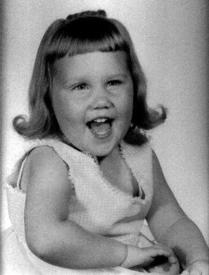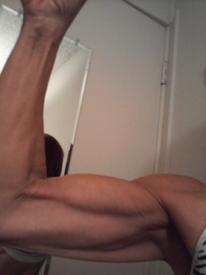More calories allowed with activity- Really??
Replies
-
Yes, you eat them back. Why?
Because your daily goal accounts for a certain amount of weight loss ALREADY!
If you go too far below that, it's self-defeating, and you could fail. In fact this is why so many people do.
Stick to your goal - 1 or 2 lbs a week - NO MORE!
This is a safe, effective and healthy way to get fit for life - not just another quick fast that sheds weight, then packs it right back on and then some.
It works; you can do this - GOOD LUCK!
Don't agree with this and here is why. I set this up for a 2 lbs loss a week which would be a 7000 calorie deficit! The iPhone app will tell you your weekly deficit. I always stick close to my food calories and NEVER eat back my exercise calories. I go to the gym everyday for 2 hours a day. It's 1 day before the weigh in and I am almost to my 7000 calorie deficit. If I even dreamed of eating back my exercise calories I would not be losing 2 lbs a week. Just sayin'.
No actually the first person was right and you are wrong.
Your calorie goal already accounts for a thousand calorie a day deficit, since a 1000 a dayX7 days a week=7000. Don't eat back those exercise calories and it's like 7000 plus whatever you didn't eat back.. do that long enough and your going to not lose anymore weight because your body needs fuel to run. That's why its good to eat back some of the exercise calories, so your body understands that it's not starving and has fuel to run off of.
To OP:
Eat some, eat all, eat half.. I've done all three and have lost weight. It's about what works for you and your body more then what works for others.0 -
Hi. I am not very overweight, so if that is your situation this might apply. To lose 1 pound a week I am only allowed 1200 calories. This is really a very small amount of food compared to my appetite. I exercise and add about 250 calories. This is good becasue it allows me to eat more, If I eat healthy food for these 250 calories, I am also getting more nutrition. The exercise is also good for me. So, I exercise 30 minutes of cardio (start to finish, including warm up) 30 minutes a day for 6 days a week. I stroll (2 mph) about 2 miles per day. On Tuesday and Thursday I try to work my upper body with strengthening (I hate to do it really) and on Friday and Sunday I do lunges and squats. Even with this exercise I have trouble losing weight because I really like to eat a lot, and have binging tendencies. By adding the exercise, though, I can "talk in a caring way" to myself telling myself I am not being deprived.0
-
I hate the fact that this gives me the mindset that I can go for the gusto food-wise if I work out.
But you CAN! That's why marathon runners eat like 5000 calories a day. The more active you are, the more you can eat.
And that was one of the most surprising "A-HA!!!" moments for me when I started on this site. I thought losing weight meant making drastic changes and feeling hungry all the time. It doesn't. It only takes small changes, and you don't have to be hungry or feel deprived, ever.
Every time I tried to lose weight before MFP, I failed. I cut my food intake too much, and it hampered my progress. Losing weight isn't just about eating less, it's about eating ENOUGH. Eating the calories earned from exercise makes it so you're eating the right amount. Not too little, not too much.
This is probably the best thing i have ever read on these forums. You are so right and thank you. I tried to explain that to my cousin, she said this diet crap is for the birds, I'm always hungry, I was like...no you shouldn't be hungry....0 -
I hate the fact that this gives me the mindset that I can go for the gusto food-wise if I work out.
But you CAN! That's why marathon runners eat like 5000 calories a day. The more active you are, the more you can eat.
And that was one of the most surprising "A-HA!!!" moments for me when I started on this site. I thought losing weight meant making drastic changes and feeling hungry all the time. It doesn't. It only takes small changes, and you don't have to be hungry or feel deprived, ever.
Every time I tried to lose weight before MFP, I failed. I cut my food intake too much, and it hampered my progress. Losing weight isn't just about eating less, it's about eating ENOUGH. Eating the calories earned from exercise makes it so you're eating the right amount. Not too little, not too much.
This is probably the best thing i have ever read on these forums. You are so right and thank you. I tried to explain that to my cousin, she said this diet crap is for the birds, I'm always hungry, I was like...no you shouldn't be hungry....
YES! I always eat my exercise calories back and I've lost 60 lbs. There have also been times when I have stubbornly insisted on eating too little for my body (the MFP minimum, 1200 net calories) and didn't lose a single lb for months. If you don't eat enough A) you're more likely to get frustrated and quit, or binge, it might actually SLOW DOWN your weight loss and C) you will never be able to build and have a hard time maintaining muscle and your fitness goals will be more difficult to meet. 0
it might actually SLOW DOWN your weight loss and C) you will never be able to build and have a hard time maintaining muscle and your fitness goals will be more difficult to meet. 0 -
I hate the fact that this gives me the mindset that I can go for the gusto food-wise if I work out.
But you CAN! That's why marathon runners eat like 5000 calories a day. The more active you are, the more you can eat.
And that was one of the most surprising "A-HA!!!" moments for me when I started on this site. I thought losing weight meant making drastic changes and feeling hungry all the time. It doesn't. It only takes small changes, and you don't have to be hungry or feel deprived, ever.
Every time I tried to lose weight before MFP, I failed. I cut my food intake too much, and it hampered my progress. Losing weight isn't just about eating less, it's about eating ENOUGH. Eating the calories earned from exercise makes it so you're eating the right amount. Not too little, not too much.
This is probably the best thing i have ever read on these forums. You are so right and thank you. I tried to explain that to my cousin, she said this diet crap is for the birds, I'm always hungry, I was like...no you shouldn't be hungry....
YES! I always eat my exercise calories back and I've lost 60 lbs. There have also been times when I have stubbornly insisted on eating too little for my body (the MFP minimum, 1200 net calories) and didn't lose a single lb for months. If you don't eat enough A) you're more likely to get frustrated and quit, or binge, it might actually SLOW DOWN your weight loss and C) you will never be able to build and have a hard time maintaining muscle and your fitness goals will be more difficult to meet.
it might actually SLOW DOWN your weight loss and C) you will never be able to build and have a hard time maintaining muscle and your fitness goals will be more difficult to meet.
I'm also in the eat-them-back camp. You lose weight by creating a caloric deficit, but too big of a deficit can work against you. MFP calculates your deficit based on your activity level and weight-loss goals, but it does not base it on exercise in addition to your daily activity (even though it asks you what you plan to do). If you add activity without increasing your calories, you make that deficit larger than it needs to or should be. And, besides, I thoroughly appreciate and enjoy every calorie I earn!0 -
I don't know how in the world anyone survives on 1200 calories.. If I eat less than 1500-1600 I start getting really dizzy and sick! Yuck. I eat about 1600-1800 calories per day( I usually eat more the day after a really intense workout) Then I work out in the evenings... about 6 pm...So I consume all of these calories before 5pm and then If I do a really hard workout then I have a good sized recovery snack or small meal or protein shake. If I'm really not hungry then I might have a chocolate milk or nothing at all. I think people are focusing way too much on the exact calorie count...Listen to your body and it will tell you if it needs food to recover!0
-
Test what works for you. I ate my exercise calories at first and had a hard time losing weight. Then I tried keeping a calorie deficit from 300 - 600 calories a day and it's working. The nice thing is that you can really monitor and see what works for you. The one thing that does work is putting in everything (food and exercise) and the MFP community. There are so many people who have had success here. Good luck with you journey0
-
Exercise calories are the yummiest. Because I earned those suckers. Just sayin'.0
-
Be extra honest with what is exercise. If you are out of shape and very heavy, then just normal shopping walking is exercise, or dishes, or ironing. But average people need sustained sweaty or heart rate increase for more than a few minutes at a time. So walking for 30 min or more I would count. Or sweating for 15-20. Lately I only do 30-40 minutes of increased heart rate exercise because I've been steady at this for over a year and i'm in better shape. I hardly ever sit around. Get a heart rate monitor with a strap (more accurate ones have a chest strap and will cost you $50 or more or you might waste your money). I never joined a gym, but the HRM was the best investment this year. (check amazon.com or ebay for "polar 4 or "polar 7")
Don't always assume that you should err on the too little amount, side. MFP has over or underestimated my personal calories burned in the database exercises listed. I got a Heart Rate Monitor and found I've burned MORE calories often, and with some things MFP overestimates it. I've been on maintence calories for a few months. I tend to need a little more than it estimates because I'm a big burner when I exercise regularly. I was losing more weight on maintence when I exercised more. Even if I accounted for it, and ate it back. As I got closer to my my weight loss goal I needed to eat more, and lose less per week. Or I stopped losing weight. It was slower going toward the end. But inches matter. Do your measurements, record them, and you will see that the scale isn't the only thing important here.
Eating is good. You want to build muscle and lose fat. Just starving yourself won't do this for you. It actually works against me. Make it good for you food. Build muscle mass, so you increase your metabolism. Eating too little always makes me not lose, plateau, or be wildly unsteady in my weight. Set your activity low and log more exercise when in doubt. Eat within 100 to 200 of your goal + exercise. within 100-200 means under OR over by only some. Not only under. Not way under. Don't skip meals, eat more often.0 -
I only eat half my exercise calories back, not all. and I don't see it that it is giving me permission to go nuts. YOu need some of those calories, because if you are to stick to a 1200 calories and you burn 500 at a workout and don't eat any of those back, you are only give your body 700 calories for the day and that is not healthy. the calories given here is already based on for you to loose weight. hope this makes sense.0
-
Also keep in mind how you want to eat when you reach your goal and want to maintain your weight.
If you train your body now to survive on very low calories, that's what you're going to be stuck with. I don't know about everyone else, but I wanted to have a healthy relationship with food and not be afraid of social events like holidays, barbecues, potlucks, birthday cake, drinks with friends, and going out to restaurants.
By keeping a modest calorie deficit, not a severe one, I was able to maintain a great deal of my lean body mass. My metabolism didn't suffer as a result. I believe if I'd forced my body to accept only 1200 calories, my metabolism would have slowed as a result and I'd have had to eat as if I was dieting to maintain my weight. Instead, I didn't even eat like I was dieting to lose weight!
Like I said, for most people, drastic changes and severely limiting your food intake is not necessary.0 -
This can be debated and debated, but really it's all simple math - MFP gives you the HEALTHY deficit you need in order to lose weight WITHOUT exercise. Yes, you increase that deficit when you exercise, but it can be too large a deficit in terms of your health and can actually hinder your weight loss. On this site your normal calorie intake is set up for your weight loss deficit so that exercise is for FITNESS, not weight loss (though you can argue you should exercise to keep your muscles mass because muscle helps burn more calories). When you create a deficit that is too large you are not fueling your body for proper functioning.
And a couple of things to consider - doctors are not trained in nutrition; people with a lot more weight to lose can sustain a higher deficit for a longer period of time than those with a smaller amount of weight to lose; it's good to start becoming more in tune with your body to recognize real hunger, but those of us losing weight wouldn't be here if that was working right now, so to just try listening to your body is not the best advice <at this point in time> in my opinion (and I am talking about overeating as well as undereating - my weight loss stalled and after logging on MFP I found I was eating far too few calories - around 900 on average - but I was never hungry. If you have a 1200 goal and you burn 300 through exercise, only 900 is left for your body's regular daily needs - this is not healthy for weight loss or for fueling your body).
When you eat your exercise calories your deficit remains the same as the HEALTHY original one that MFP set. To account for inaccuracies in food logging and number of calories burned you can always try eating half of them back, but you should really eat some of them if you want to make sure your body is getting what it needs to be healthy.0 -
I was worrying about this yesterday. All of these answers are really awesome, thanks for the helpful information everyone!
 0
0 -
I don't know how in the world anyone survives on 1200 calories.. If I eat less than 1500-1600 I start getting really dizzy and sick! Yuck
Exactly!0 -
Most methods of calorie tracking/deficit calculation take how much you work out and then add it into your daily allowance. For example, when I lost weight after the last baby I worked out 4-5 days a week and was eating 1600 calories a day (whether I worked out or not) and lost about 1.5 lbs a week.
But MFP takes your activity level and calculates a deficit BEFORE factoring in your exercise calories. So when you exercise, your body uses more and you can eat more. The daily amounts are lower (for example it tell me 1200 a day for 1 lb loss, vs the 1600 for 1.5 I did 7 years ago) hence when you exercise you eat more.
It works both ways. I'm losing about an average of a pound a week, give or take (I'm not so good at staying within limits this time! Plus I'm in my 30s now) eating back my 400 or so exercise calories. But for people who burn 1000 or more in exercise a day, I would suggest only eating back half.0 -
I agree with this one and eat only 50-70% of the exercise calories because those numbers are not accurate.Also try to eat atleast 1200 cals a day unless you want to regain or stay ob low calories diet forever.Eat those calories if you are hungry. Don't eat them if you are not hungry.
I agree with this! Nothing is accurate and if you eat them (all) back then you could be eating more than what you are suppose to in order to lose the weight at the rate you have chosen. I do exactly this.... I use mine for back up and if I am hungry I will eat every bit of them and if I am not then I just leave them. I also will use mine as make up calories so if I have 500 left on Monday and on Tuesday I go over by 200 then I know I am still ok.0 -
I eat my exercise calories back, because I lose at a snail's pace otherwise.
I can go on 1200 cals without being hungry, but the scary thing I just can't visualize what that is doing to my body on the inside. There's a lot of things we can handle without any obvious negative effects in the short-term, but they accumulate and show up later in the long-term. Also, with these numbers, they're just averages. Some people fit in that average. Some people are below or above. So you just don't know really I think. Just try to be vigilant about how you're feeling and adjust accordingly.0 -
Don't agree with this and here is why. I set this up for a 2 lbs loss a week which would be a 7000 calorie deficit! The iPhone app will tell you your weekly deficit. I always stick close to my food calories and NEVER eat back my exercise calories. I go to the gym everyday for 2 hours a day. It's 1 day before the weigh in and I am almost to my 7000 calorie deficit. If I even dreamed of eating back my exercise calories I would not be losing 2 lbs a week. Just sayin'.
Actually, you're wrong. Mfp accounts for the 7000 calorie deficit when you set it to 2 lbs a week. If you hit your weekly target on your iPhone you'd be at a 7000 deficit. If you have an additional deficit of 7000, you actually have a 14000 calorie deficit for the week. They want you to hit your target, they do the math for you. The only time your target goals don't include the built-in deficit is if you're on maintenance. You are actually setting yourself to lose 4 lbs a week by doing it that way which isn't the healthiest pace. Not trying to call you out, but don't give false information.0 -
Also, and this may have been touched upon earlier, make sure that when you eat more calories after exercise you are still within your macros. Changing your lifestyle, when it comes to eating and fitness can be hard. Don't fall into the trap of constantly allowing yourself to eat foods that are high in fat and low in nutrients because you've 'earned' those calories through exercise. A treat once in awhile is ok of course. And I agree with an earlier post; eat if you are hungry, don't eat if you aren't. Just don't starve yourself.0
-
The quality of your food makes the difference. A huge difference in hunger and how you feel (and water) . Whole grains, less processed, less sugar, more complex carbs, more fiber from real fruits and vegetables (I never worry about fruit sugars from whole fresh fruit). I don't get the mentality of eating back half your exercise calories. MFP already puts you at a minus. Why would you increase that minus? why why why... Build in snacks. Eat less (a lot less) white bread, junk food, and bakery and you will be less hungry and less light headed. I thought my maintence calories looked depressingly slim. It's actually enough. Practice, changing your diet quality, and more practice eating better. A lot of it's habit. Building good habit takes time and many tries at making small changes over time. This isn't a sprint. It's a marathon. Becuase when you are done you can't go right back and eat like you did. Or you will return to how you did and be the same again.I don't know how in the world anyone survives on 1200 calories.. If I eat less than 1500-1600 I start getting really dizzy and sick! Yuck
Exactly!0 -
Do not take it too simple: if the calories you add are fibers for example, no problem...but if they are fat, you will not like your shape after a couple of weeks.
I like to eat normally, and without fat. So I do exercises to lose weight. What is happening is that, because I eat proteins (mostly chicken, fish and vegetables), I increase my muscle mass, which means that my weight is not decreasing as quickly as it could, but that is not my main goal: I want more to lose fat than weight.
Making sport increase my need in food and to get my metabolism quicker, I add healthy meals (fruits, vegetables or oatmeal) between my meals.
Making sport does not requires you to eat the calories you spent: as an exemple, I eat 2000 calories/day which is my BMR (the calories I spend if I sleep day and night) but spent 17000 calories this week (about 2 hours running or biking/day). What is good to consider when exercising, is to have the right proportion of protein (more muscle)/carbs (for energy)/fat (also required to build muscle). I have no idea what proportions are good for you as I am more endurance (carbs) oriented.
When you see negative calories, consider you lose weight quicker, do not eat them back. Have a lot of water, eat carrot or banana and have FUN ^^
PS.: MFP overestimates calories spent, if my home bike tells me I spent 600 cal, MFP says 900 for the same parameters0 -
There is a school of thought that believes you should eat your workout calories, hence why it gives you extra when you work out. I generally eat at least some of mine, because working out given me a bigger appetite. I generally eat healthy foods though, when I eat back my calories. So that doesn't mean run for an hour and eat a piece of chocolate cake, it means do your normal workout and then get to have a second helping of something healthy at dinner.0
-
Excellent post. I see so many people eat fewer calories or burn extra calories "just in case" MFP's calculations are off. But what if they're off in the opposite direction? I suspect there are inaccuracies on both sides, so I assume they cancel each other out and strive to be within 50 (plus or minus) of my goal.Be extra honest with what is exercise. If you are out of shape and very heavy, then just normal shopping walking is exercise, or dishes, or ironing. But average people need sustained sweaty or heart rate increase for more than a few minutes at a time. So walking for 30 min or more I would count. Or sweating for 15-20. Lately I only do 30-40 minutes of increased heart rate exercise because I've been steady at this for over a year and i'm in better shape. I hardly ever sit around. Get a heart rate monitor with a strap (more accurate ones have a chest strap and will cost you $50 or more or you might waste your money). I never joined a gym, but the HRM was the best investment this year. (check amazon.com or ebay for "polar 4 or "polar 7")
Don't always assume that you should err on the too little amount, side. MFP has over or underestimated my personal calories burned in the database exercises listed. I got a Heart Rate Monitor and found I've burned MORE calories often, and with some things MFP overestimates it. I've been on maintence calories for a few months. I tend to need a little more than it estimates because I'm a big burner when I exercise regularly. I was losing more weight on maintence when I exercised more. Even if I accounted for it, and ate it back. As I got closer to my my weight loss goal I needed to eat more, and lose less per week. Or I stopped losing weight. It was slower going toward the end. But inches matter. Do your measurements, record them, and you will see that the scale isn't the only thing important here.
Eating is good. You want to build muscle and lose fat. Just starving yourself won't do this for you. It actually works against me. Make it good for you food. Build muscle mass, so you increase your metabolism. Eating too little always makes me not lose, plateau, or be wildly unsteady in my weight. Set your activity low and log more exercise when in doubt. Eat within 100 to 200 of your goal + exercise. within 100-200 means under OR over by only some. Not only under. Not way under. Don't skip meals, eat more often.0 -
There is a school of thought that believes you should eat your workout calories, hence why it gives you extra when you work out. I generally eat at least some of mine, because working out given me a bigger appetite. I generally eat healthy foods though, when I eat back my calories. So that doesn't mean run for an hour and eat a piece of chocolate cake, it means do your normal workout and then get to have a second helping of something healthy at dinner.
And why not have chocolate cake? If your diet has been otherwise healthy that day, there's nothing wrong with having cake! 0
0 -
This is what my doctor told me, he is the one that sent me to this site. I was using sparkpeople, still do for somethings. I do like mfp better for the tracking but doc told me that in order to lose weight I am to ignore the addition of calories it adds. If you are in maintenance he said it is ok to eat some back.
The whole idea is that you are burning more than your body needs. Any excess can and will be stored as fat. Your body has a wonderful way of using its fuel, the brain, and muscles will take theirs first and the rest will go to fat stores.
I have lost 80+ pounds this year listening to my doctor. If you are a guy you can also get away with eating those calories as men need more fuel.
I agree with this, I was eating my burned calories back and was not loosing or at least was not even loosing a pound a week. So I quit doing that and low and behold started loosing again. I do however think some people can do that and still loose so if it works for an individual that's fine. All I know is that did not work for me. I burn a lot too and still barely loose a pound a week. Each body is different.
Peace! :flowerforyou:0 -
Eat those calories if you are hungry. Don't eat them if you are not hungry.
This!!0 -
Double post0
-
Cake is good. Have it. But it will leave you hungry quick. It's a quick sugar fuel. Then you crash and get more hungry. Have it for a treat. Don't have it for food. Fit it into your overall calories for the day.
I know when I was on real low calories I was much more hungry for a few days if I ate too much "junk" and bakery. I craved the stuff like an addiction. Like an alcholic that slipped up and had one drink! Once I had more control and was farther into the journey I still had it, but way less, and less often. Exception: some foods trigger binges for me so I just don't go there. Or go there way less often. Now, on maintence calories I have enough calories to play with. Exactly like a bank account. Can you afford it? Calories have to be "worth" it. Prelog it and take a look. Is it going to leave you hungry later because you ate all your food and only had half a cake and a egg? Like say a chicken breast in a cheff salad would have filled you up with protein, fat, fiber and calories at a fraction and kept you from feeling sick-hungry later.
Will your overall day be worth giving up those calories? Like buying a toy with too much money and then it just breaks. It isn't always worth it. But we learn to control our money impulse by doing these things, then learning and adapting over time. Saving our money for more value. What if you eat only one, or half? Is it worth it? Do I just want to gob something in my mouth, or do I really want it? If it's worth it, do it. If it's not, don't. Another option is to admit you want it, do it, then compensate with more exercise. That may also be worth it. Like working to make more money for a silly thing you didn't need, but wanted.There is a school of thought that believes you should eat your workout calories, hence why it gives you extra when you work out. I generally eat at least some of mine, because working out given me a bigger appetite. I generally eat healthy foods though, when I eat back my calories. So that doesn't mean run for an hour and eat a piece of chocolate cake, it means do your normal workout and then get to have a second helping of something healthy at dinner.
And why not have chocolate cake? If your diet has been otherwise healthy that day, there's nothing wrong with having cake! 0
0 -
I personally really think it depends on what your body needs. I know some people would NEVER eat back a single workout calories, and others who eat them all back. I really think it depends on your needs.... You also need to take into consideration things like how your week has been and what your body is telling you. For example, I have not been as active as normal, so I have not eaten any of my workout calories back. That being said, if tonight I am still hungry after dinner, I will eat something, even if I go a bit over my calorie range. Listen to your body. You may not think it, but it knows what's best. (NOTE: Body, NOT Mind. Ignore what it thinks you need/want. Your brain is an evil little F****r that just wants yummies)0
-
Thank you all for great comments, they really help me keep things in perspective. It's great to have such knowlegdeable people on this site. You all rock!! :happy:0
This discussion has been closed.
Categories
- All Categories
- 1.4M Health, Wellness and Goals
- 394.8K Introduce Yourself
- 44K Getting Started
- 260.6K Health and Weight Loss
- 176.2K Food and Nutrition
- 47.5K Recipes
- 232.7K Fitness and Exercise
- 444 Sleep, Mindfulness and Overall Wellness
- 6.5K Goal: Maintaining Weight
- 8.6K Goal: Gaining Weight and Body Building
- 153.2K Motivation and Support
- 8.2K Challenges
- 1.3K Debate Club
- 96.4K Chit-Chat
- 2.5K Fun and Games
- 4.1K MyFitnessPal Information
- 16 News and Announcements
- 1.3K Feature Suggestions and Ideas
- 2.8K MyFitnessPal Tech Support Questions






















